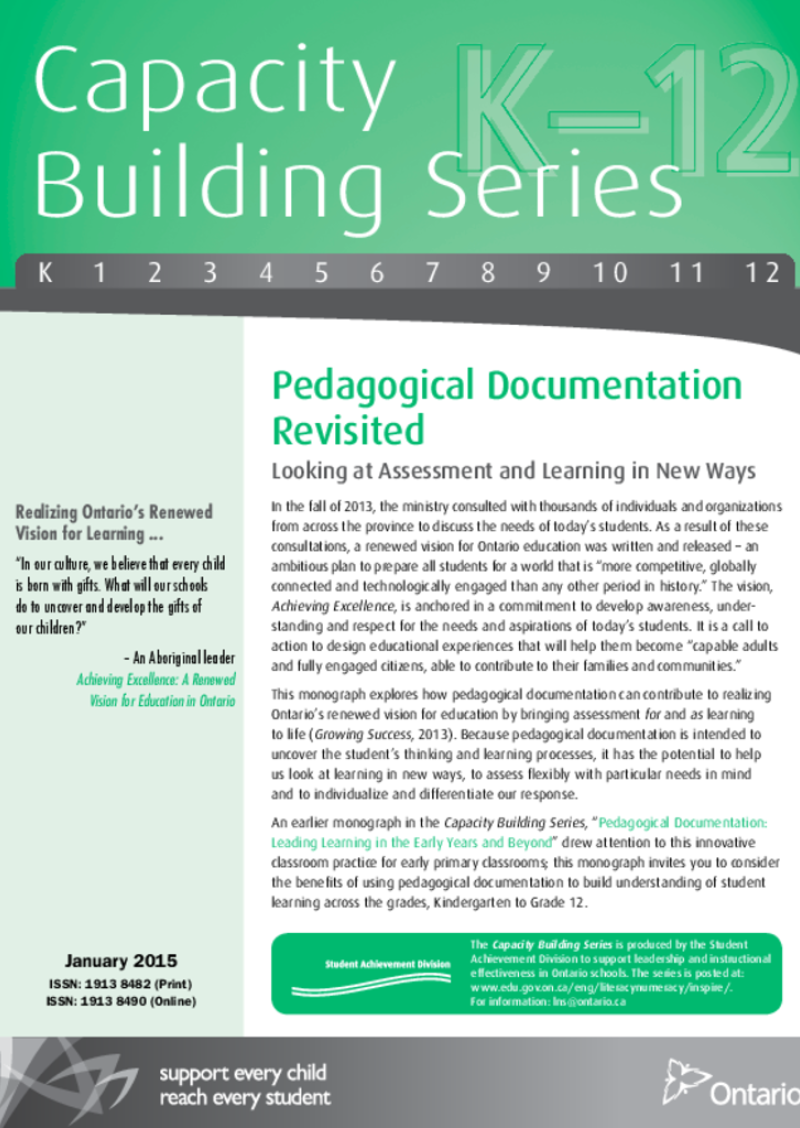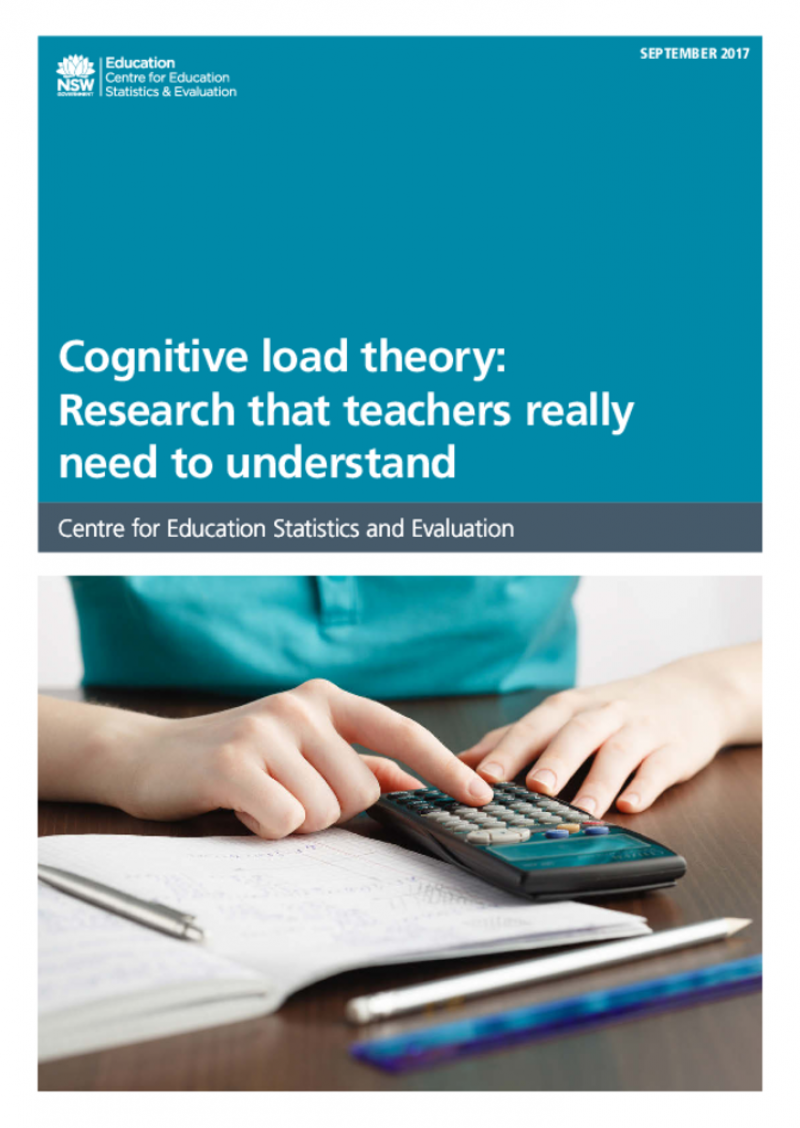Centre de Ressources pour les Enseignants
Affichage de 1 à 3 sur 3
Pedagogical Documentation Revisited
This monograph explores how pedagogical documentation can contribute to realizing Ontario’s renewed vision for education by bringing assessment for and as learning to life. Because pedagogical documentation is intended to uncover the student’s thinking and learning processes, it has the potential to help us look at learning in new ways, to assess flexibly with particular needs in mind and to individualize and differentiate our response.
Pedagogical documentation allows educators to see how thinking, learning, curriculum and assessment are intertwined. It offers them the opportunity to contribute to a fuller understanding of learning and to advance the research on effective practice, both locally and internationally.
Coordinated action to transform education. What's in it for teacher representatives?
This briefs presents what teacher representatives gain through coordinated action. The involvement of teacher representative bodies in broader policy dialogue takes place through multi-stakeholder coordination mechanisms, including local education groups (or the equivalent). Here, they can bring the attention of decision makers and other partners to issues and practices for ensuring coherence in the implementation of education policy, including investments needed in teacher preparation, professional development, raising teaching standards and improving teacher well-being.
Cognitive load theory: Research that teachers really need to understand
To improve student performance, teachers need to understand the evidence base that informs and helps improve their practice. An area of research with significant implications for teaching practice is cognitive load theory.
This paper describes the research on cognitive load theory and what it means for more effective teaching practice. The first part of the paper explains how human brains learn according to cognitive load theory, and outlines the evidence base for the theory. The second part of the paper examines the implications of cognitive load theory for teaching practice, and describes some recommendations that are directly transferable to the classroom.


